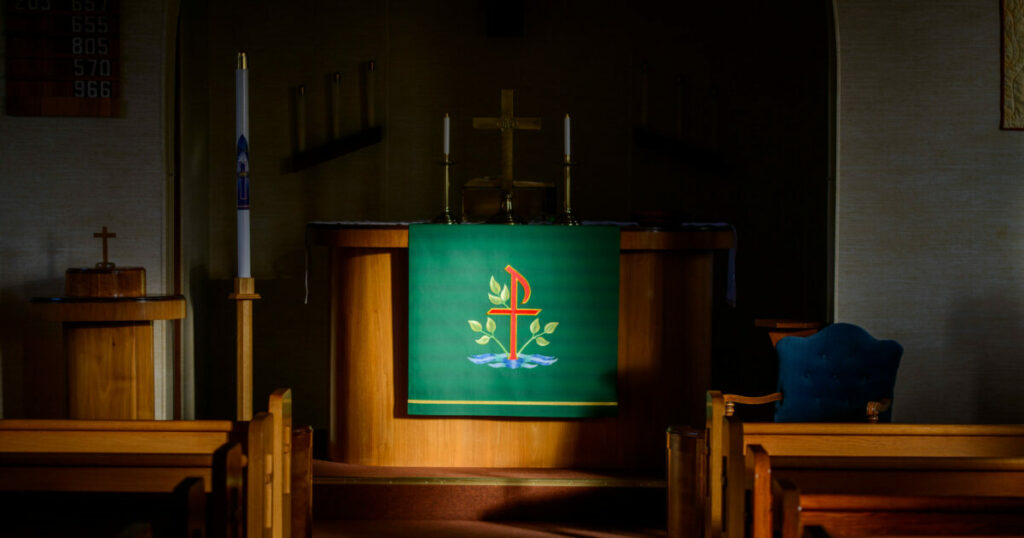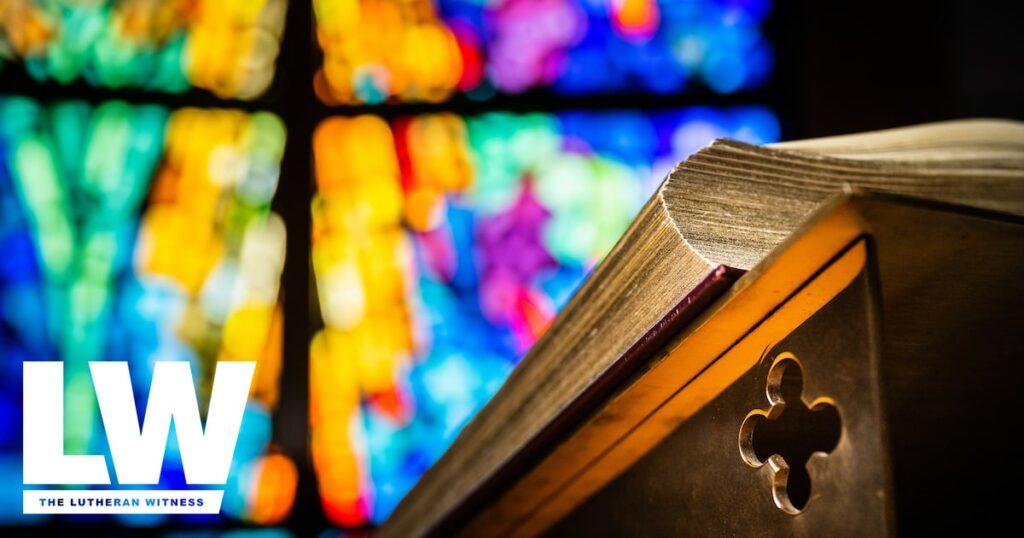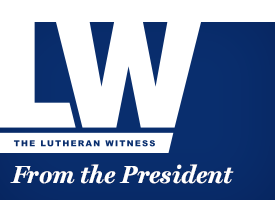Trinity Lutheran Church, Grangeville, Idaho, on Tuesday, July 4, 2017, in Grangeville. LCMS Communications/Erik M. Lunsford
by Matthew C. Harrison
There really is “nothing new under the sun” (Eccl. 1:9). Pandemics and plagues have come and gone over the millennia. Christ has sustained His church. When the bacteria-borne black plague struck Wittenberg in Luther’s day, he wrote a letter of counsel to a good friend:
“Use medicine; take potions which can help you; fumigate house, yard, and street; shun persons and places wherever your neighbor does not need your presence or has recovered, and act like a man who wants to help put out the burning city. What else is the epidemic but a fire which instead of consuming wood and straw devours life and body? You ought to think this way: “Very well, by God’s decree the enemy has sent us poison and deadly offal.” Therefore, I shall ask God mercifully to protect us. Then I shall fumigate, help purify the air, administer medicine, and take it. I shall avoid places and persons where my presence is not needed in order not to become contaminated and thus perchance infect and pollute others, and so cause their death as a result of my negligence. If God should wish to take me, he will surely find me and I have done what he has expected of me and so I am not responsible for either my own death or the death of others. If my neighbor needs me, however, I shall not avoid place or person but will go freely. … See, this is such a God-fearing faith because it is neither brash nor foolhardy and does not tempt God” (LW 43:131).
Luther says he would “go freely” because he decided to remain in the city and provide spiritual care even as his parishioners, dear friends and loved ones died. Today, medical professionals place themselves in danger to serve those with COVID-19.
This current trouble points us to eternity
Luther most likely wrote our favorite Reformation hymn, “A Mighty Fortress Is Our God,” around 1527 — during the plague. Temporal tragedy points us to eternal hope and consolation. Jesus foretold what we see: “Nation will rise against nation, and kingdom against kingdom. There will be great earthquakes, and in various places famines and pestilences. And there will be terrors and great signs from heaven” (Luke 21:10–11).
We see such things now. Great fear has spread across the globe. Confusion abounds. The church is stressed and pressed. I am hearing of LCMS pastors in deep distress as parishioners die in hospital quarantine outside of their pastor’s spiritual care. Virtually all of us are having to forgo gathering as the church, receiving the Sacrament from our pastors only in small groups or not at all.
Jesus also reassures us: “Now when these things begin to take place, straighten up and raise your heads, because your redemption is drawing near” (Luke 21:28). We have been redeemed, paid for by Christ’s death on the cross, declared righteous by His resurrection (Rom. 4:25). We anxiously await the “redemption of our bodies” (Rom. 8:23) — that is, the resurrection of our bodies to live with Christ for eternity. We do not cower, least of all in the face of a pandemic. “Straighten up!” says Jesus. “Lift up your heads.” “Surely I am coming soon” (Rev. 22:20).
This crisis defines our task today
I’m worried. I’m forever self-centered. I’m a sinner. Crises move me to repentance. Thank God I’m forgiven. But not all fear is sinful. It’s not sinful to run and get out of the way of a tornado or an oncoming train. We are using our God-given smarts when we wisely follow the advice of medical authorities. How shall I live now? “It is no longer I who live, but Christ who lives in me. And the life I now live in the flesh I live by faith in the Son of God, who loved me and gave himself for me” (Gal. 2:20).
As Luther acted during the plague and as he once said, “The need of my neighbor is my call to mercy.” What is my vocation? I shall honor government officials (Fourth Commandment) — specifically as they ask and require me to act responsibly regarding my own health and that of others (Fifth Commandment). Where I am called to serve others, even at some risk to myself (Luther left this decision to the individual conscience), so shall I do, trusting that God is my helper and that I’m in His hands. I shall do my best to demonstrate love to others, especially my family and the friends God has given me. I shall be generous in my prayers for all, especially my pastors, church workers and congregation. I shall pray for those in authority. Where I cannot come together for worship, I shall concentrate on the Word of God. I shall continue to be generous in my stewardship and a blessing to the mission of my congregation and Synod so that others may know Christ.
This crisis forces us to begin to ask, “How shall we act when it’s over?”
Crises always force us to ask foundational questions. Who is Christ? What does the church mean in our lives? How are we relating to our families? Are we living lives of fear or joyfulness in Christ’s abundant gifts? Have we learned something about our congregation and community? What renewed or new appreciation do we have for our congregation? Have we learned something about caring for each other within the congregation? Have we learned something about reaching out? Have we learned something about the blessing of being in this together as the LCMS? Have we found strength in the fundamental teachings of the catechism? Have we learned something from the Scriptures about faith and life? Is our congregation really caring for its pastors and workers? How might we better prepare for the next crisis? How might we work together with the LCMS congregations in our circuit for the sake of the Gospel?
Even as you think through some of these things, count on the fact that “for those who love God all things work together for good, for those who are called according to his purpose” (Rom. 8:28). And for that reason, we can dare in Christ to be confident that we shall be stronger for passing through this crisis — stronger together.
–Pastor Harrison





